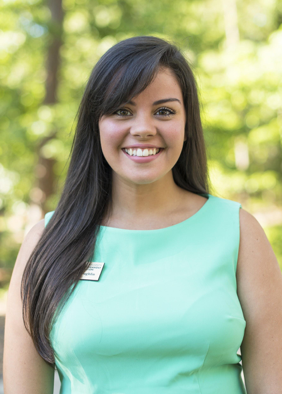The FAFSA is a vitally important tool, but stories from students show that filing it out is not as simple as it could be. Read more from current college students:
Kelsey Rodriguez, Mott Community College, Class of 2020; Public Relations
 I have received financial aid based on the FAFSA every year that I’ve been in school thus far, and every time I have had issues with the application. The first year I thought that it was just because I was new to the process and hadn’t learned the ropes yet, but year after year, it remains a challenge. One of the problems that I had was entering my parents’ tax information. It often would tell me that the information was incorrect or didn’t match up so I would have to re-enter the information multiple times before it would work, even if I was entering the same information each time. I’ve also had issues simply logging in to my account to make changes. I have to change my password every time that I log in, even though I made a note of it, and was sure it was correct. The system had a major, frustrating glitch, making me select a new password every time. I know many people who must rely on the FAFSA to receive financial aid, but who don’t finish the application because the process is so complicated and frustrating that they get leave the application unfinished and with it up to thousands of dollars of potential aid to go to school. I think that simplifying the FAFSA process is paramount to ensure that students who rely on federal financial aid can access funds to further their education, and I hope that these changes take place soon.
I have received financial aid based on the FAFSA every year that I’ve been in school thus far, and every time I have had issues with the application. The first year I thought that it was just because I was new to the process and hadn’t learned the ropes yet, but year after year, it remains a challenge. One of the problems that I had was entering my parents’ tax information. It often would tell me that the information was incorrect or didn’t match up so I would have to re-enter the information multiple times before it would work, even if I was entering the same information each time. I’ve also had issues simply logging in to my account to make changes. I have to change my password every time that I log in, even though I made a note of it, and was sure it was correct. The system had a major, frustrating glitch, making me select a new password every time. I know many people who must rely on the FAFSA to receive financial aid, but who don’t finish the application because the process is so complicated and frustrating that they get leave the application unfinished and with it up to thousands of dollars of potential aid to go to school. I think that simplifying the FAFSA process is paramount to ensure that students who rely on federal financial aid can access funds to further their education, and I hope that these changes take place soon.
Kevion Ellis – University of Northern Colorado; Class of 2018; International affairs and economics
 As a first generation student, filling out the FAFSA application was extremely difficult the first time around. Because of my experience, and knowing that I wasn’t unique in struggling with the FAFSA process, I was fortunate enough to become a trained peer counselor at my university’s financial aid office during my sophomore year of college. Through my training, I became very experienced with how to navigate the application. However, every day I work with students who aren’t as knowledgeable with FAFSA as I have come to be. Working with these students, I see the obstacles that deter them and their families from completing the application, like understanding questions on family income and providing additional documentation. These barriers can prevent students from filling out the FAFSA and ultimately from obtaining necessary financial aid for their education. I believe if the FAFSA application were simplified through legislation, more students would be able to fill it out correctly, applications would be completed earlier, and students would be provided the aid that matches their circumstances and meets their need.
As a first generation student, filling out the FAFSA application was extremely difficult the first time around. Because of my experience, and knowing that I wasn’t unique in struggling with the FAFSA process, I was fortunate enough to become a trained peer counselor at my university’s financial aid office during my sophomore year of college. Through my training, I became very experienced with how to navigate the application. However, every day I work with students who aren’t as knowledgeable with FAFSA as I have come to be. Working with these students, I see the obstacles that deter them and their families from completing the application, like understanding questions on family income and providing additional documentation. These barriers can prevent students from filling out the FAFSA and ultimately from obtaining necessary financial aid for their education. I believe if the FAFSA application were simplified through legislation, more students would be able to fill it out correctly, applications would be completed earlier, and students would be provided the aid that matches their circumstances and meets their need.
Kayla McLoughlin – Methodist University, Class of 2018; Political science major, legal studies minor
 Without the financial aid provided as a result of filling out a FAFSA year after year, I wouldn’t be a senior in college right now. But, this tool, as vital as it is, is not very user-friendly. I have experienced this personally, as well as with family and friends who I have assisted with their FAFSA. The biggest challenge I have found with FAFSA is the requirement for tax information from a parent. Many young people become financially independent, like I have been since I was sixteen, and may not have a relationship with their parents that allows them to easily obtain this information. To complete the FAFSA without your parents’ tax information is extremely complicated, and requires applicants to jump through major hoops and provide multiple forms of documentation. Students who are solely responsible for paying for their education for whatever reason, should be able to fill out the form without being at a major disadvantage.
Without the financial aid provided as a result of filling out a FAFSA year after year, I wouldn’t be a senior in college right now. But, this tool, as vital as it is, is not very user-friendly. I have experienced this personally, as well as with family and friends who I have assisted with their FAFSA. The biggest challenge I have found with FAFSA is the requirement for tax information from a parent. Many young people become financially independent, like I have been since I was sixteen, and may not have a relationship with their parents that allows them to easily obtain this information. To complete the FAFSA without your parents’ tax information is extremely complicated, and requires applicants to jump through major hoops and provide multiple forms of documentation. Students who are solely responsible for paying for their education for whatever reason, should be able to fill out the form without being at a major disadvantage.
Graduating high school from a small, rural area, I quickly realized the lack of education and literacy training around the FAFSA. Guidance counselors in these environments are often bogged down with their other duties, and many of the organizations who assist in this kind of training focus their efforts to large, urban areas. Due to this unfortunate reality, I was left to figure out everything by myself, constantly worried I would do something wrong and get no aid, or worse, have to pay money back later on because of a mistake on the application. The process as a whole is very intimidating, and as a first-generation college student, I felt very alone going through it.
The FAFSA has been vital to my undergraduate success. Luckily, I was able to navigate the waters solo with little trouble, but I know this is not the case for many others. If we want to continue building the next generation of leaders, we need to ensure that they are set up for success, starting with access to higher education. The first step to expanding access is making the FAFSA simpler and easier to understand, and to provide readily available online resources for applicants who may not be able to get the help they need in person.
Esha Wooten – Penn Foster College (online Associates), Class of 2018, Early Childhood Education
 The process of completing my FAFSA was confusing because I did not find the questions relevant to my personal financial situation, and I could not find the required materials to complete my application. Many prospective students are already self-sufficient, or cannot rely on their parents for financial assistance as they enter college. This particular circumstance can prevent self-financed students from receiving the aid they need, and force students like me to take out loans. Additionally, the requirement to fill out the FAFSA each year can be complicated and time consuming, so I urge Congress to pass bills like HR-5784, which would allow Pell recipients to only fill out a short form to renew their FAFSA, instead of re-entering all the information every year.
The process of completing my FAFSA was confusing because I did not find the questions relevant to my personal financial situation, and I could not find the required materials to complete my application. Many prospective students are already self-sufficient, or cannot rely on their parents for financial assistance as they enter college. This particular circumstance can prevent self-financed students from receiving the aid they need, and force students like me to take out loans. Additionally, the requirement to fill out the FAFSA each year can be complicated and time consuming, so I urge Congress to pass bills like HR-5784, which would allow Pell recipients to only fill out a short form to renew their FAFSA, instead of re-entering all the information every year.
